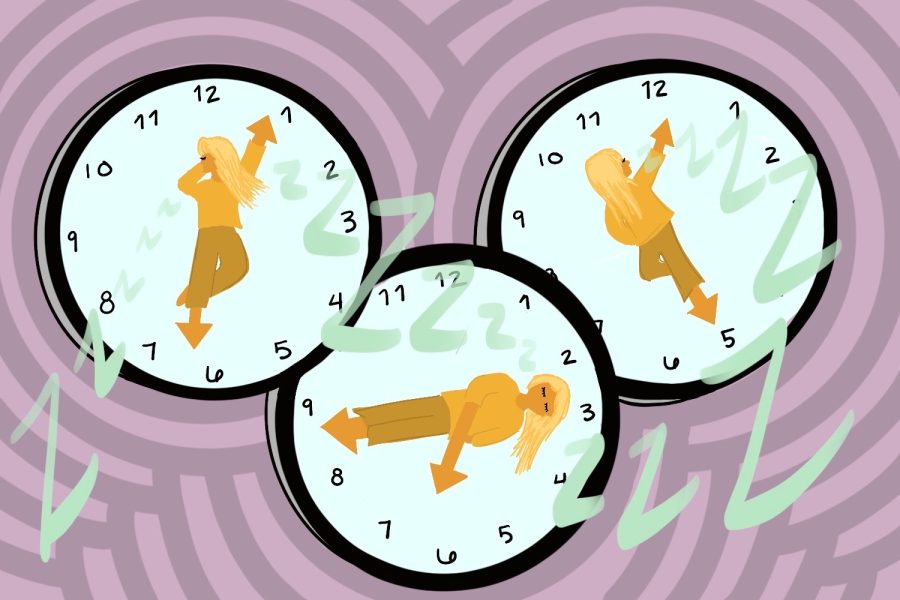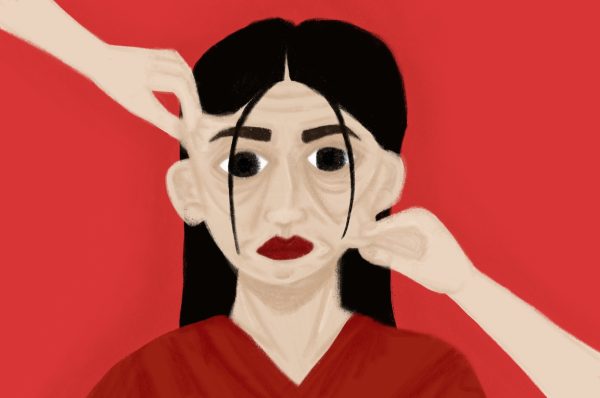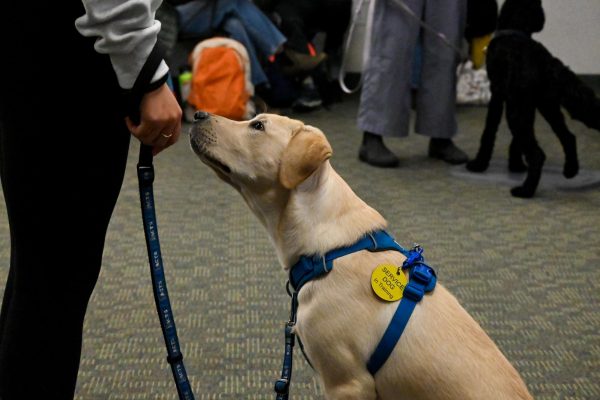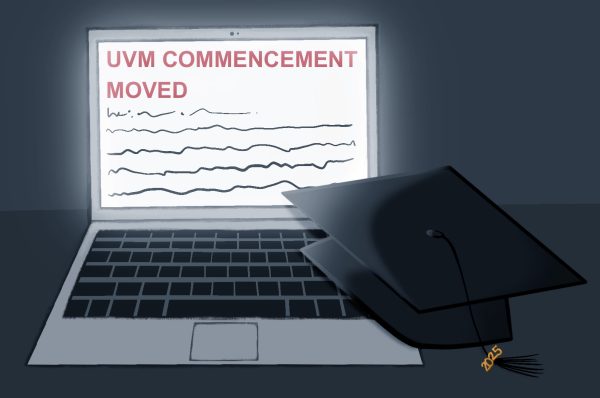I slept six hours a night my first year of college, here’s how you can avoid that
Getting good sleep in college is hard, and it’s even more so on campus.
My first year at UVM, I slept horrendously. I’d shut my blinds but nothing could stop the glaring Wilks/Davis/Wing parking lot lights from shining through, keeping me up far too late at night.
Improving sleep is not as simple as purchasing a new set of curtains or popping a melatonin gummy—It takes a lot more work than that.
It’s easy to read a pamphlet from Living Well about improving sleep hygiene—a term for one’s sleep habits, according to the Centers for Disease Control and Prevention—and scoff at an increasingly long list of bullet-pointed tips.
Some of them feel entirely unrealistic, such as “wake up and go to sleep at the same time every day.”
I don’t know about you, but I can’t imagine being out on a weekend and heading home early to improve my sleep hygiene. Not to mention that for students on campus, their dorm likely isn’t going to be quiet enough to snooze until well after 1 a.m. on a weekend.
Not even a frigid Burlington winter can guarantee folks won’t be making a ruckus outside your home.
Sophomore Sally Huston can recall many nights in the dorm where she was stuck awake, unable to catch her shuteye.
“Last winter, outside Wing, all the skiers would ski on their half pipe outside, and if it wasn’t them keeping me up, I’d be greeted by screeching beeps from the snowplow,” Huston said.
In addition to increased noise, I’ve noticed college students can find it hard to find rest when homework piles up.
“Since coming to college I’ve gotten worse sleep, it’s just hard to find time for it,” Huston said. “I feel like at UVM I prioritize school over sleep and my social life even though I value those more.”
This is an issue many students face, myself included. During the fall 2021 semester, I struggled with balancing my school work, extracurriculars and sleep. I certainly did not prioritize getting to bed, and my mental health suffered because of it.
Ninety-six percent of college students get less than the recommended eight hours of sleep, according to a May 28, 2021 survey by the Harvard Division of Communication.
Of course, one or two late nights a week won’t be too harmful, but if you’re regularly seeing less than six hours of sleep, Harvard’s survey reports you’re prone to increased brain fog, irritability and trouble coping with stress.
These are all things I’ve experienced after multiple weeks of poor sleep, and I generally attributed them to other things happening in my life socially or academically, when I really just needed more Zs.
Jan Shamberger, Living Well’s behavioral health provider, specializes in helping students with sleep routines on campus.
Shamberger knows that asking college students to wake up at the same time every day isn’t very realistic, especially if they’re often waking up early in the morning for class. However, she does think there are effective ways to minimize the damage of sleeping in too late on weekends.
“We know that the longer you sleep in past your normal wake-up time, the more havoc it creates for your sleep schedule, so instead of waking up at 11:00 a.m. or noon on Saturday, if you can try to shorten that to 10:00 a.m., you’ll see a big difference,” Shamberger said.
Of course, this can only help if your bedtime is at a semi-reasonable hour the Friday before. If you are going to sleep at 5 a.m., waking up at 10 a.m. will most likely do more harm than sleeping in late.
But, if you usually wake up at 8 a.m. on weekdays, the closer you can get to that number on Saturday and Sunday will help drastically in getting to bed earlier the week after.
Shamberger also emphasized that it’s incredibly important to have a bedtime routine.
According to a Vermont Cynic survey of 182 UVM students, 44% cited that they didn’t have one.
Even if you don’t think you have a routine, you probably do. Our body’s look for patterns to know when to sleep and can pick up on bad habits as easily as good ones, Shamberger said.
“A lot of students will start a pattern of getting into bed and then feeling anxious, which then can lead them to stay awake for an hour or two before sleeping, and if that happens time and time again, this anxiety can become their routine,” Shamberger said.
I had a routine very similar to this in my first year of college. I still remember one night when I got into bed at 10:30 p.m., determined to get a solid 8 hours. That, of course, did not happen, and I was up until around 3:00 a.m.
Nothing could get me to sleep that night. What I now know is I shouldn’t have just laid there resting hours on end, praying a soothing podcast could ease my brain to rest. Instead, it’s best to counteract spells of insomnia like this by leaving your bed.
“If you’re not asleep within 20 minutes of getting to bed, we want you to get out and do a calming activity,” Shamberger said. “Whether that’s reading, drawing, journaling, meditating, this is what can help you reset.”
In general, having your smartphone in bed will make it harder to doze off in a timely manner. Exposure to blue light suppresses the body’s release of melatonin, which causes us to fall asleep, according to the CDC.
It took me until a year and a half ago to stop using screens in my bed. I was a chronic YouTube watcher and would often get into bed and sift through videos for about an hour before sleeping.
It was changing this habit that allowed me to turn my sleep around, and in turn, my mental health as well.
Building back a good sleep schedule is a long, hard process. And I’m not speaking from experience, as I still have a long way to go. But, the message I want to get through here is that it’s more than possible.
Whether you’re on campus or off, if you are someone who’s struggling with sleep, know that you’re not alone. Many of us struggle with getting enough rest. We all have the ability to overcome it, however.
You’ve got this.











